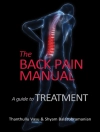In the international literature there is a broad scope for comparative research on the welfare regime, family change and gender relations, but we have no book that comprehensively collects the main research that has been conducted from the perspective of family well-being. Thus, this volume focuses on the comparative analyse of family and well-being in a European perspective, a dimension which literature has not covered till the present.
This book collects the researches done in Europe on family well-being and compares family change and well-being in different institutional and cultural contexts. It takes a deeper look at early evidence of family well-being and presents a compilation of findings from the main researchers on this topic.
A broad range of topics is covered from the theorizing of children’s well-being to the development of specific measures of family well-being. The book also outlines pivotal methodological and conceptual issues. A distinguished, international group of researchers provide insights into the dynamics of family change and well-being, using indicators as a means to confront new phenomena as well as to bridge data and theory.
สารบัญ
1 Introduction – Almudena Moreno Mínguez.-
Part I Approaches to the study of family well-being.-
2 Conceptualizing family well-being – Shirley Zimmerman.-
3 Social quality, the quality of life and families in Europe – Claire Wallace and Paloma Abbott.-
Part II Family, child poverty and well-being.-
4 Child poverty and well-being in Italy in a comparative framework – Daniela Del Boca and Anna Laura Mancini.-
5 Child well-being and single parent family structure in the OECD – Simon Chapple.-
Part III Work family balance and gender.-
6 Parental leave policies, gender equity and family well-being in Europe: a comparative perspective – Karim Wall and Anna Escobedo.-
7 Work-family balance and new social risks – Anders Ejrnæs & Thomas P. Boje.-
8 Spousal well-being: an inquiry into the links between household income and parental task division – Joris Ghysels.-
9 Working parents and well-being family – Almudena Moreno Mínguez.-
10 Gender and well-being in Britain since 1800 – Bernard Harris.-
Part IV Youth, elder, migration and social work.-
11 Support and success in youth transitions. A comparative analysis on the relation between subjective and systemic factors – Axel Pohl, Barbara Stauber and Andreas Walther.-
12 How will a potential reduction in informal care affect the well-being of the elderly? – Manfred Huber, Ricardo Rodrigues and Frédérique Hoffmann.-
13 Well-being and resilience in asylum seeking children and families in Sweden – Ulla Björnberg.-
14 Empowerment and social work with families – Antonio López Peláez and Sagrario Segado Sánchez-Cabezudo
4 Child poverty and well-being in Italy in a comparative framework – Daniela Del Boca and Anna Laura Mancini.-
5 Child well-being and single parent family structure in the OECD – Simon Chapple.-
Part III Work family balance and gender.-
6 Parental leave policies, gender equity and family well-being in Europe: a comparative perspective – Karim Wall and Anna Escobedo.-
7 Work-family balance and new social risks – Anders Ejrnæs & Thomas P. Boje.-
8 Spousal well-being: an inquiry into the links between household income and parental task division – Joris Ghysels.-
9 Working parents and well-being family – Almudena Moreno Mínguez.-
10 Gender and well-being in Britain since 1800 – Bernard Harris.-
Part IV Youth, elder, migration and social work.-
11 Support and success in youth transitions. A comparative analysis on the relation between subjective and systemic factors – Axel Pohl, Barbara Stauber and Andreas Walther.-
12 How will a potential reduction in informal care affect the well-being of the elderly? – Manfred Huber, Ricardo Rodrigues and Frédérique Hoffmann.-
13 Well-being and resilience in asylum seeking children and families in Sweden – Ulla Björnberg.-
14 Empowerment and social work with families – Antonio López Peláez and Sagrario Segado Sánchez-Cabezudo
5 Child well-being and single parent family structure in the OECD – Simon Chapple.-
Part III Work family balance and gender.-
6 Parental leave policies, gender equity and family well-being in Europe: a comparative perspective – Karim Wall and Anna Escobedo.-
7 Work-family balance and new social risks – Anders Ejrnæs & Thomas P. Boje.-
8 Spousal well-being: an inquiry into the links between household income and parental task division – Joris Ghysels.-
9 Working parents and well-beingfamily – Almudena Moreno Mínguez.-
10 Gender and well-being in Britain since 1800 – Bernard Harris.-
Part IV Youth, elder, migration and social work.-
11 Support and success in youth transitions. A comparative analysis on the relation between subjective and systemic factors – Axel Pohl, Barbara Stauber and Andreas Walther.-
12 How will a potential reduction in informal care affect the well-being of the elderly? – Manfred Huber, Ricardo Rodrigues and Frédérique Hoffmann.-
13 Well-being and resilience in asylum seeking children and families in Sweden – Ulla Björnberg.-
14 Empowerment and social work with families – Antonio López Peláez and Sagrario Segado Sánchez-Cabezudo
6 Parental leave policies, gender equity and family well-being in Europe: a comparative perspective – Karim Wall and Anna Escobedo.-
7 Work-family balance and new social risks – Anders Ejrnæs & Thomas P. Boje.-
8 Spousal well-being: an inquiry into the links between household income and parental task division – Joris Ghysels.-
9 Working parents and well-being family – Almudena Moreno Mínguez.-
10 Gender and well-being in Britain since 1800 – Bernard Harris.-
Part IV Youth, elder, migration and social work.-
11 Support and success in youth transitions. A comparative analysis on the relation between subjective and systemic factors – Axel Pohl, Barbara Stauber and Andreas Walther.-
12 How will a potential reduction in informal care affect the well-being of the elderly? – Manfred Huber, Ricardo Rodrigues and Frédérique Hoffmann.-
13 Well-being and resilience in asylum seeking children and families in Sweden – Ulla Björnberg.-
14 Empowerment and social work with families – Antonio López Peláez and Sagrario Segado Sánchez-Cabezudo
11 Support and success in youth transitions. A comparative analysis on the relation between subjective and systemic factors – Axel Pohl, Barbara Stauber and Andreas Walther.-
12 How will a potential reduction in informal care affect the well-being of the elderly? – Manfred Huber, Ricardo Rodrigues and Frédérique Hoffmann.-
13 Well-being and resilience in asylum seeking children and families in Sweden – Ulla Björnberg.-
14 Empowerment and social work with families – Antonio López Peláez and Sagrario Segado Sánchez-Cabezudo.
เกี่ยวกับผู้แต่ง
Almudena Moreno took a Ph D in Sociology from the Universitat Autònoma de Barcelona in 2004 and is professor in sociology at the University of Valladolid. She specialised in family issues, welfare state, public policy and comparative research on gender. She has been visiting researcher at the universities of Oxford (United Kingdom), Mc Gill (Canada), Göteborg (Sweden), Stirling (United Kingdom), Turin (Italy) and Chicago (EE.UU). Currently she is taking part in two European projects on equality policies on gender and youth. She is also a member in AREA, where she is developing her work as researcher in different European projects. Her research work has been recognized with the International Award for Young Sociologists, given by the International Sociological Association in 1998; an award of research given by the Fundación Acción Familiar, in 2004 and the extraordinary award of Ph.D. in 2006.
She has published numerous books and articles. Her last publications include: (2009): ‘Gender, Equality and Quality of Life: Examples of Best Practices from Nine European Cities’ in: Community Quality-of Life Indicators, V.2, Best Cases, edited by Philips, Rhonda; Rahtz, Don R.; (2009): ‘Family and gender roles in Spain from a comparative perspective’, European Societies Journal; (2009): ‘Gender Roles, Family Policies and Dilemmas of the Work and Family Life Balance in Spain from a Comparative European Framework’, Journal of Societal & Social Policy.












